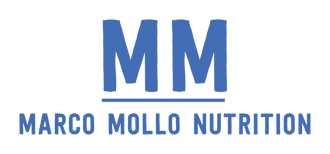 This past year has been huge for me, and at the core of it all was beginning my journey as a student dietitian. Over the past months I went a little quiet on my social media as I was finishing my first year of dietetic training. Once that was up I thought it would be a good idea to take some time to reflect on this year and some of the major lessons learned for me, as well as how I want to continue to shape Marco Mollo Nutrition. This post is part 1 of 3 of a summary of the most important things I have learned and thought about this year. What is a Dietitian? To be honest prior to starting my first year of training I only had a vague idea of what dietitian’s do. Which was interesting looking back on it because I was committing to two more years of study and a few more dollars added to my student loan. There are two points about a dietitian that I think are important to make first. One, that the title “Dietitian” is a protected name, you need to have completed a certain level of study (Masters degree) and be registered within New Zealand to call yourself a dietitian. The second point, contrary to what many people think, dietitians are not the food police who scrutinize and judge your food choices, like when you eat the fairy-bread at kid’s parties. Chances are you’ll probably see me eating some of the fairy-bread at kid’s parties. What a dietitian is trying to do is get a picture of what life is like for you, then from there work, with you, to make achievable changes to your eating habits to promote your health and well-being. As with many professions, dietitians must continually learn and stay up to date to remain registered, so a big part of what the dietitian does is interpret, analyze and appraise what scientific research we have, as well as the new stuff as it comes out and translate that into recommendations for the average Joe. In essence, they make sense of the science, so you can work with them to mould that into realistic behaviors for you to implement. What some people are not aware of is there is a range of different settings you might find a dietitian. Dietitians can consult people 1:1; they can be found on the wards in a hospital; they may work within a foodservice like a residential aged care facility or prison; dietitians work for public health organisations promoting healthy eating or creating educational resources and programmes for communities; they may also give advice on policy. These are just some of the roles a dietitian may have. While I now have a great idea as to what the dietitian does, I think my understanding of the dietitian's role will continue to develop throughout my career. Remaining Within Your Scope of Practice A prerequisite to starting a Masters in Dietetics is having a degree in nutrition. At the conclusion of my nutrition degree I felt this expectation to know everything about nutrition and be able to answer everyone’s questions. I think that is a common feeling we as people have when we’re seen as an expert in a particular field. In reality I didn’t always have an answer, and as I learned this year that is to be expected. From kidney disease, sports nutrition and paediatrics there are many branches within nutrition and for someone to be a true expert in all of them is extremely unrealistic. I have learned this year about where my expertise lies and the boundaries of my scope of practice/knowledge, so I can better serve the people I work with. As this knowledge grew it also became clearer to see where people were stepping outside of their scope of practice, particularly in the health and fitness industry which I will discuss in the last part of this series of posts on Friday. Part 2 will be out tomorrow morning talking about the lessons learned around the mental side of nutrition and evidenced based practice. Thanks for reading. Marco
0 Comments
Leave a Reply. |
AuthorWrite something about yourself. No need to be fancy, just an overview. Archives
November 2020
Categories |
